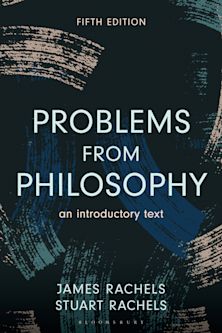Intellectual Agency and Virtue Epistemology: A Montessori Perspective
Intellectual Agency and Virtue Epistemology: A Montessori Perspective
This product is usually dispatched within 10-14 days
- Delivery and returns info
-
Free UK delivery on orders £30 or over
Description
Drawing on the work of Maria Montessori and contemporary virtue epistemologists such as Linda Zagzebski and Jason Baehr, Intellectual Agency and Virtue Epistemology presents a new interpretation of the nature of intellectual agency and its associated virtues.
Focusing on Montessori's interpretation of specific virtues including sensory attentiveness, intellectual love and intellectual humility, it discusses why these are virtues, why one can be held responsible for them, and how they relate to each other. Moreover, it considers pedagogical implications of considering these capacities to be virtues. Intellectual Agency and Virtue Epistemology not only reveals the value of seeing Montessori as a virtue epistemologist, it encourages educationalists to take seriously the cultivation of intellectual virtues as an important part of the education of children.
Table of Contents
2. Maria Montessori's Interested Empiricism.
3. Intelligence, the Unconscious, and the Body.
4. Epistemic Virtues.
5. Intellectual Character.
6. Intellectual Love.
7. Sensory Acuity and Sensory Attentiveness.
8. Physical Dexterity.
9. Intellectual Patience and Quickness.
10. Intellectual Humility and Courage.
11. Conclusion
Bibliography
Index
Product details

| Published | 17 Jun 2021 |
|---|---|
| Format | Paperback |
| Edition | 1st |
| Extent | 272 |
| ISBN | 9781350267442 |
| Imprint | Bloomsbury Academic |
| Dimensions | 234 x 156 mm |
| Publisher | Bloomsbury Publishing |
Reviews

ONLINE RESOURCES
Bloomsbury Collections
This book is available on Bloomsbury Collections where your library has access.



































